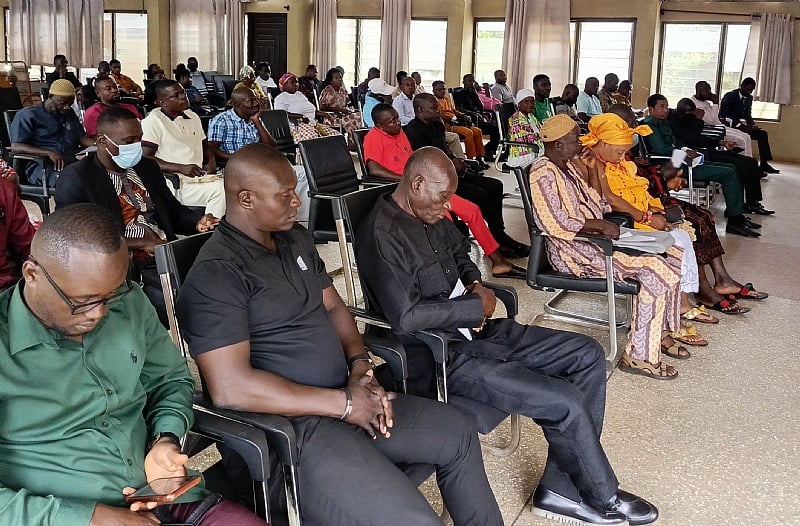The Techiman Municipal Office of Agriculture has organised a one-day sensitisation programme to educate stakeholders on the government’s flagship agricultural initiative, the “Feed Ghana” programme.
The event brought together a cross-section of stakeholders including farmer groups from across the municipality, agro-input dealers, Assembly Members, Agricultural Extension Officers, traditional authorities (Nananoom), queen mothers, religious leaders, community-based organisations (CBOs), and civil society organisations (CSOs).
Addressing participants, the Municipal Coordinating Director, Mr. Emmanuel Amoah, outlined the purpose of the programme and encouraged farmers to take full advantage of the initiative to boost food production in the coming years.
In his remarks, Mr. Stephen Aidoo, the Techiman Municipal Director of Agriculture, said the programme aims to significantly scale up the production of key food crops for both domestic consumption and export.
He explained that the government is committed to investing in the cultivation of crops such as maize, rice, sorghum, soybeans, cassava, yam, and potatoes, among others, as part of a broader effort to enhance food security.
Mr. Aidoo urged farmers to form well-structured and identifiable groups with unique names, which he said would make it easier for them to be recognised and supported. “Farmers who belong to identifiable groups and have proper registration stand a better chance of accessing assistance,” he stressed.
Municipal Chief Executive, Hon. Kwaku Adjei Mensah, reiterated the significance of the programme, describing it as a “brilliant intervention” initiated by His Excellency President John Dramani Mahama to transform agriculture in the Bono East Region, particularly in Techiman.
Hon. Mensah cautioned participants to remain vigilant and avoid falling prey to fraudsters who often exploit such programmes for personal gain. “Only engage in activities organised by the Department of Agriculture, the Municipal Assembly, or its accredited representatives,” he warned.
He further emphasised the need for participants to verify the credibility of any agricultural initiative before participating, especially those not sanctioned by the Assembly or its departments.
Touching on diversification in agriculture, the MCE noted that the sector is not limited to crop production alone but also includes animal rearing. He urged participants to adopt animal husbandry practices, including the rearing of goats, sheep, cattle, and other livestock, to complement their income and enhance food security.
The event was graced by notable traditional leaders including Nana Boaffour Oppong II and Nana Yeboaa Asumah III, Atontenhemaa of the Techiman Traditional Area.


